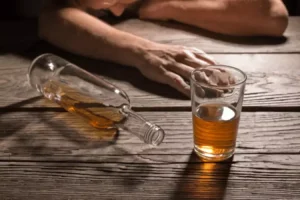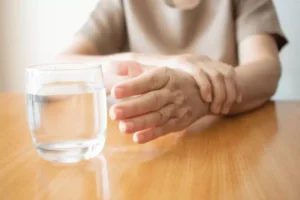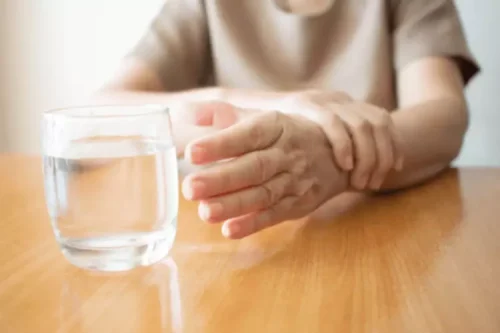
Instead of glorifying the behavior, a bevy of rap artists speak of addiction in a more somber tone. There are many unfortunate consequences of the current relationship between drug and rap culture. All music seeks to share the artist’s truth, and in the case of rap music, if this truth tends to include drugs, perhaps the two can never be disentangled.
The Importance of Treatment
While the group had two semi-successful studio albums, Kelly attended school to become a studio engineer and remained working in music until his death in 2013. While some suspected that he was suffering from cancer, he never confirmed it. The drugs were thought to be a mixture for“purple drank,” a combination of codeine and promethazine, a commondrug reference in southern hip-hop culture. It doesn’t help that music is a financially insecure career, especially given the rise of streaming and the loss artists have been encumbered with thanks to the decline of physical music. For more mainstream musicians, fame brings its own set of difficulties, the pressure to keep up an appearance, the feeling of being watched by fans the world over, and the need to avoid the potential wrath of cancel culture.
Lil Wayne – “I Feel Like Dying”

While some argue that this is “just music” and has no noticeable impact on listeners, it has become increasingly clear that American adolescents are taking many of these messages to heart. In short, because substance abuse is a major part of rap culture – and it has been for quite some time. The presence of substance use references in rap music is certainly nothing new. Back in the 80s and 90s, marijuana use was the most openly discussed in popular rap music. Crack cocaine also made a frequent lyrical appearance in many of the most popular rap songs throughout this period.

Mannie Fresh and Lil Wayne Drop ‘The Mix Before Tha VI’ Exclusive
The dark reality of drug addiction in the rap industry serves as a stark reminder of the destructive nature of substance abuse. It’s a pressing issue that demands awareness, understanding, and proactive measures towards prevention and recovery. Many rappers who grew up around drugs have positively portrayed substance use in their music.

What can change is the level of support why do rappers do drugs provided to artists if they are struggling – whether that be with their mental health, substance abuse or a mixture of the two. Without this, without awareness, the issue will stay normalised, and we will inevitably lose more and more musicians to substance abuse. The dark reality of drug addiction amongst rappers calls for serious attention.
They are individuals facing complex challenges, and their experiences serve as a reminder of the need for compassion, understanding, and support within the music industry and beyond. Pimp C’s death at 33 was attributed to sleep apnea and an overdose of cough syrup. Lexii Alijai (21), Chynna (25), and Shock G (57) all reportedly died of accidental drug overdose.
A renewed focus on health
Songs such as “Suboxones,” “Sackler Oath” and “Overdose,” which opens with a haunting 911 recording of a woman frantically pleading for help with one, contrast sharply with the pill-laced tunes of hip-hop’s mainstream. Lyrics describing drug use have not only became more frequent but the context changed from concern about the devastation of drugs to a more positive portrayal. In October 2016, he reluctantly sought treatment for depression and suicidal urges. He eventually entered long-term sobriety after detoxing without medical supervision, though this practice is considered by physicians to be a dangerous approach to overcoming addiction. But one opioid led to another, and in 2007, Eminem accidentally overdosed on methadone, an opioid agonist medication, and was rushed to the emergency room.
- The dark reality of drug addiction in the rap industry serves as a stark reminder of the destructive nature of substance abuse.
- A sophomore student who wishes to remain anonymous explains how seeing these drugged out rappers getting interviewed and on social media affected their decision making.
- For those who don’t follow the hip-hop scene, Lil Peep was an emerging rapper who brought an emo twist to today’s spectrum of rap — until last week, when he unexpectedly died due to a drug overdose.
- In this section, we will delve into the stories of DMX, Mac Miller and Eminem.
- A number of rappers of all backgrounds have grappled with substance use disorders.
- Hip-hop artists tend to die from a variety of causes that are shocking — gun violence, health, overdose, and harm.
Their experiences selling drugs (and smoking alcoholism them) translated into platinum-selling records, fueling a generation of rappers intent on telling the story of the hustler. By 1998, cocaine had overtaken marijuana as rap’s most talked-about drug. This trend persisted through the early 2000s with Jay Z, Raekwon, and the Clipse—all of whom kept the hustler-rapper Mafioso persona at the forefront of hip-hop culture. Gustav Elijah Åhr (November 1, 1996 – November 15, 2017), aka LilPeep, remains one of “emo raps” most influential figures.

In 2006, after the death of a friend, he began abusing Vicodin, one of the most dispensed prescription painkillers in the United States. During this time, he also began misusing Xanax and other sedative medications. A number of rappers of all backgrounds have grappled with substance use disorders. This synthetic drug contains mood-altering properties that produce feelings of pleasure, warmth and energy.

The image that he’s painted for himself even gets to him a little bit. The days of bands taking girls on their buses after shows, snorting lines of cocaine in the dressing room and going out on stage with dilated pupils are over. They’ve been replaced with girls being brought onto the tour buses of rappers and their entourage, they pop Xanax and, well, go out on stage with dilated pupils. I wouldn’t particularly consider myself a Lil Peep fan, but such a young rapper, with an upward-facing career and burgeoning fan base, whose life was suddenly cut short — I could not believe the news. It seemed like Lil Peep had so much going for him, and now I would never hear another Lil Peep song again.